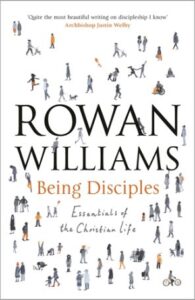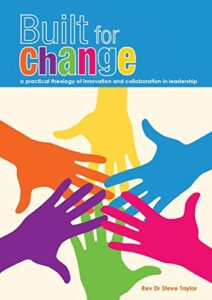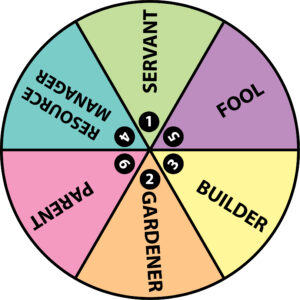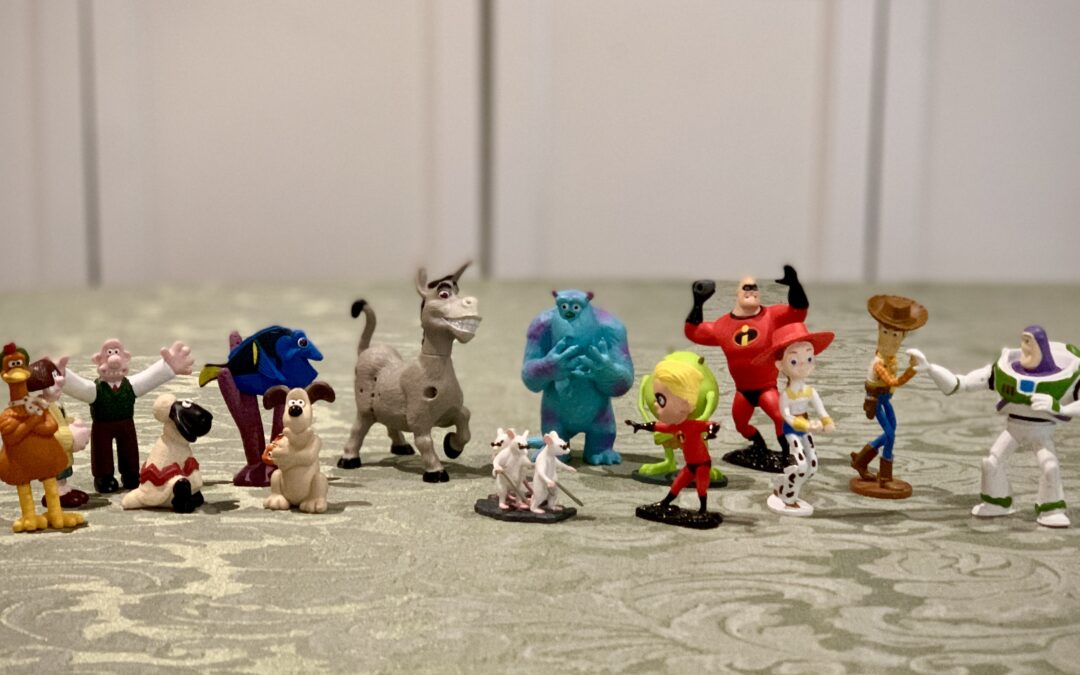Week 7 of our unit for Uniting College for Leadership and Theology was about Forms of Missional Leadership. Yes, I had some of my collection of Disney, Pixar and Aardman characters on the table as people arrived.
 The first part of the session was a reflection on John 15:1-11 and the “being” of discipleship. This is based on a chapter from my doctoral thesis and the writing of Rowan Williams in his fabulous little book Being Disciples. This was the basis of one of my Bible Studies for the SA Synod several years ago, and there’s even an online sermon by me recorded in our backyard in Victoria during COVID lockdown here.
The first part of the session was a reflection on John 15:1-11 and the “being” of discipleship. This is based on a chapter from my doctoral thesis and the writing of Rowan Williams in his fabulous little book Being Disciples. This was the basis of one of my Bible Studies for the SA Synod several years ago, and there’s even an online sermon by me recorded in our backyard in Victoria during COVID lockdown here.
My question for leaders is what if one of our top priorities is helping people learn how to abide in God (in the terms that Williams speaks of) — not simply preaching about this, but helping people grow in the practices that it requires. We reflected on First Peoples’ knowing about how to abide or dwell on country.
For Part Two we broke into small groups. I had four ministry agents join us online from around the country for a session where they each talked abour their roles as missional leaders in their congregations and communities. This went for about 40 minutes and we had fabulous conversations.
- Please tell us a little about who you are and your ministry context
- How would you describe your leadership style in general?
- In your current context, what does it mean for you to be a “missional leader”?
- What are a couple of examples of how that has been evident in the life of the congregation and local community? [this doesn’t have to be all success stories]
- What have been your main leadership lessons in your current placement? What are you still learning about?
After a break we came came back together as a class to explore the following in small groups and in the large group:
What did you hear about missional leadership?
- leadership styles (recognising your strengths or gifts)
- leadership qualities (character, attitudes, skills)
- leadership approaches (steps, processes, priorities)
 Part Three was about different kinds of missional leadership. Of the many leadership references around I chose Steve Taylor’s Built for Change and his six perspectives of Jesus as Innovator.
Part Three was about different kinds of missional leadership. Of the many leadership references around I chose Steve Taylor’s Built for Change and his six perspectives of Jesus as Innovator.
- Servant
- Gardener
- Builder
- Resource Manager
- Fool
- Parent
This section of Steve’s book was one of the weekly readngs, but I also made a one page summary to which I added three questions for each type/role. The questions could be asked of ourselves, of our team, or of a mission initiative in which we are involved. We also referred to Tom Kelley’s The Ten Faces of Innovation, in particular these ten roles being grouped into Learning Personas, Organising Personas and Building Personas. Kelley is connected to IDEO. We’ll be doing more on innovation, improvisation, pioneering and placemaking in coming weeks,
I had a dice game planned around this, but due to a tech glitch of my own doing we couldn’t do it hybrid, so I invited people to do some personal reflection about their leadership approaches/styles instead.

We finished with a refection on our practices of listening and seeing in our local neighbourhood being about learning to abide or dwell in place.
